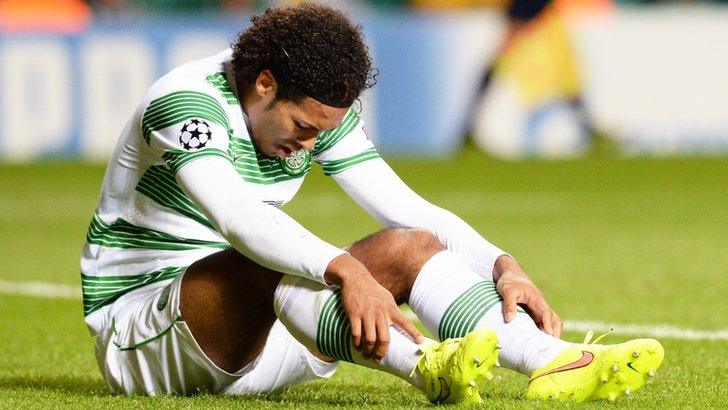Celtic: Champions League exit the result of downsizing
- Published
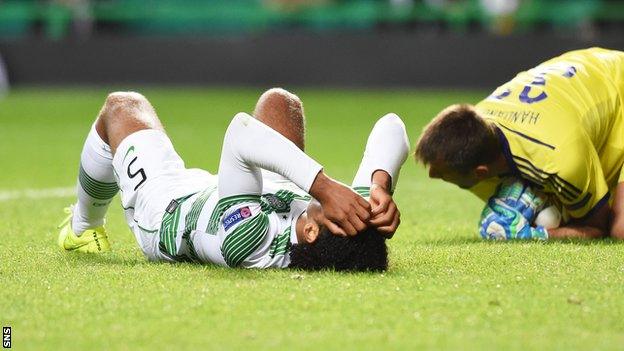
Celtic were knocked out of the Champions League at the play-off stage
If last season's Champions League campaign showed that Celtic had lost the ability to survive against the very best then this season's debacle proves they cannot even now survive at a level well below the very best.
When attempting to analyse their double failure in recent weeks it's as well to start at the beginning rather than the end and that self-inflicted horror show on Tuesday evening - Celtic's Champions League play-off defeat by NK Maribor.
To put proper context on where they are now - and how far they have been allowed to fall - you need to go back two seasons to their first bow in this competition under Neil Lennon.
The Champions League is a brutal testing ground where so many things have to go right if teams like Celtic are to prosper.
Celtic 'not good enough' for Champions League
In 2012-13, they had an outstanding goalkeeper, steely concentration and organisation in defence, midfield spoilers that stood toe-to-toe with outstanding rivals, an extraordinary ability to convert a freakishly high percentage of their chances - and luck.
All of those things were required to get Celtic through to the last 16. They had players who could stay focused despite having less of the ball than most of their opponents. They didn't give away criminally soft goals or pick up daft red cards.
In their six group games they had an attacking game that was - in the ratio of opportunities created to goals scored - the most efficient in the entire competition. More ruthless than Real Madrid and Barcelona and Bayern Munich and Borussia Dortmund and all the others.
In the famous double-header with Barcelona they had an average of 27% possession. In the two matches they had six attempts on target compared to Barca's 27. And yet the aggregate score was 3-3. Celtic scored from 50% of their efforts that found the target. A jaw-dropping statistic.
Wind the clock forward a season and so many of the things that went right for Celtic in 2012-13 didn't happen in 2013-14. They still had the outstanding goalkeeper, but their defence, midfield and attack were all weaker.
Celtic summer signings | |
|---|---|
2010 | Efrain Juarez (£3m), Gary Hooper (£2.4m), Beram Kayal, Anthony Stokes (£1.2m), Daryl Murphy (£800,000), Emilio Izaguirre (£600,000), Fraser Forster (loan), Cha Du-Ri, Joe Ledley, Daniel Majstorovic, Charlie Mulgrew (free). Transfer fees: £8.4m |
2011 | Mo Bangura (£2.2m), Victor Wanyama (£900,000), Badr El Kaddouri, Fraser Forster (loan), Adam Matthews, Dylan McGeouch, Kelvin Wilson (free). Transfer fees: £3.1m |
2012 | Fraser Forster (£2m), Efe Ambrose (£1.5m), Miku, Lubos Kamenar (loan), Lassad (free). Transfer fees: £3.5m |
2013 | Virgil van Dijk (£2.6m), Teemu Pukki (£2.4m), Amido Balde (£1.8m), Derk Boerrigter (£1m), Nir Biton (£700,000), Steven Mouyokolo (free). Transfer fees: £8.5m |
2014 | Jo Inge Berget, Jason Denayer, Aleksandar Tonev, Wakaso Mubarak (loan), Craig Gordon (free). Transfer fees: £0. |
Lennon bought Virgil van Dijk as a partner for Kelvin Wilson, not as a replacement. Nir Bitton was a downgrade on Victor Wanyama. Teemu Pukki was brought in to fill the gap left by Gary Hooper. There was a swift erosion in quality through the spine of the team and it told.
The previous season Celtic scored nine goals and secured 10 points in the group stage. Last season they got three goals and three points and the goals they scored were courtesy of a penalty and a deflection in the win over Ajax and a consolation when already 6-0 down to Barcelona.
And this was after experiencing an almighty scare in getting to the group stage in the first place. The one result last season that should have informed their transfer strategy this season was the 2-0 play-off first-leg loss to Shakhter Karagandy which preceded a 3-0 win in Glasgow. That was the wake-up call. Or it ought to have been.
Celtic didn't need to spend the kind of money that would have given themselves a shot at the last 16. That would have been financial madness. They needed to spend to improve a team that came perilously close to not making the last 32.
But they didn't. Peter Lawwell, the club's chief executive, failed to learn the lesson. He argues that much of the money that has been raised in television revenue and transfer fees has been reinvested in the team. It's hard to see where.
On Tuesday night, Celtic went into a critical European game with Anthony Stokes as the first-choice striker and yet Stokes hasn't scored in Europe in almost three years. Is that not proof of downsizing in microcosm?
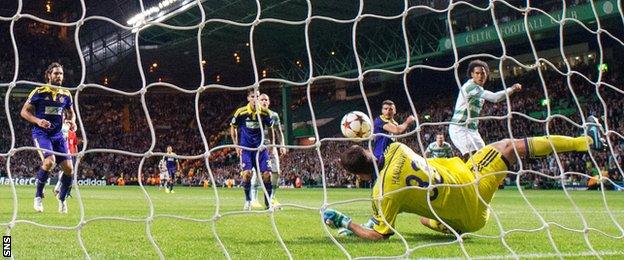
Jasmin Handanovic's save to deny Virgil Van Dijk sealed NK Maribor's progress
Everybody knew what needed to be done at Celtic a year ago but the deficiencies in their team haven't been addressed. Some attempts have been made to plug holes but the judgement has been off.
Derk Boerrigter, Pukki, Amido Balde. They have lost Georgios Samaras - a decent European operator - and replaced him with Jo Inge Berget, a loan signing from Cardiff reserves.
There is the unmistakeable - and surely unarguable - impression of a club consistently downsizing. The summer was the time to reinvigorate things and go again. Instead they lost an experienced manager and replaced him with Ronny Deila.
It's too early to make a definite call on Deila. After all, had you judged Lennon on his early record in Europe then he wouldn't have been around long enough to bring about a revival. Those initial qualifying failures against Braga, Utrecht and Sion were all critical stops on his journey towards success in the Champions League.
Good managers study their own blunders and learn from them. In that regard, Deila has a huge amount of material to get through. There is a lack of quality, confidence and organisation in his team that is stark.
The defence has gone backwards on his watch. The midfield is plodding save for the excellence of Callum McGregor. Berget's arrival and elevation is bordering on the bizarre for one so ordinary. So many things have taken a step back. Maybe two steps back.
It's been said that Celtic have now found their level in the Europa League. On current form, that's a bit generous. Of course, you have to factor in the absence of Scott Brown and what might improvements his presence will bring, but the way they're going there could be plenty of rough days ahead for Celtic.
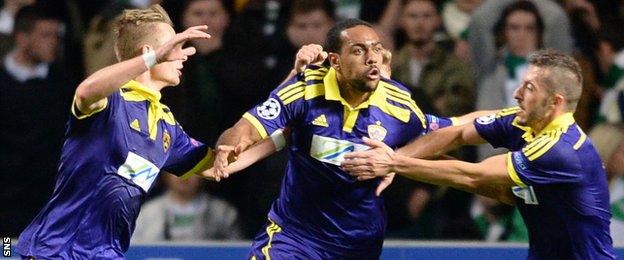
Marcos Tavares (centre) scored to secure NK Maribor's place in the Champions League group stage
The Europa League might be a secondary competition that possesses none of the glamour of the main event, but there are enough teams in there that could easily give Celtic another dose of reality unless Deila improves and better players arrive.
When the winning goal went in on Tuesday there was a shock that comes with the realisation of the doomsday scenario, but there shouldn't have been. Celtic's standards have been dropping since their fine run in Europe two seasons ago.
They had two shots at the Champions League and they flunked them, having been reinstated to the competition following third qualifying round opponents Legia Warsaw fielding of an ineligible player. Celtic were a goal ahead in the away legs against Legia and Maribor and yet they didn't have the ability to take advantage.
While they're counting their blessings that they've still got European football until Christmas despite having a record of two wins in six matches, it might be a decent time for the Celtic board to take a hard look at what's happening and ask where, exactly, do they go from here.
- Published27 August 2014
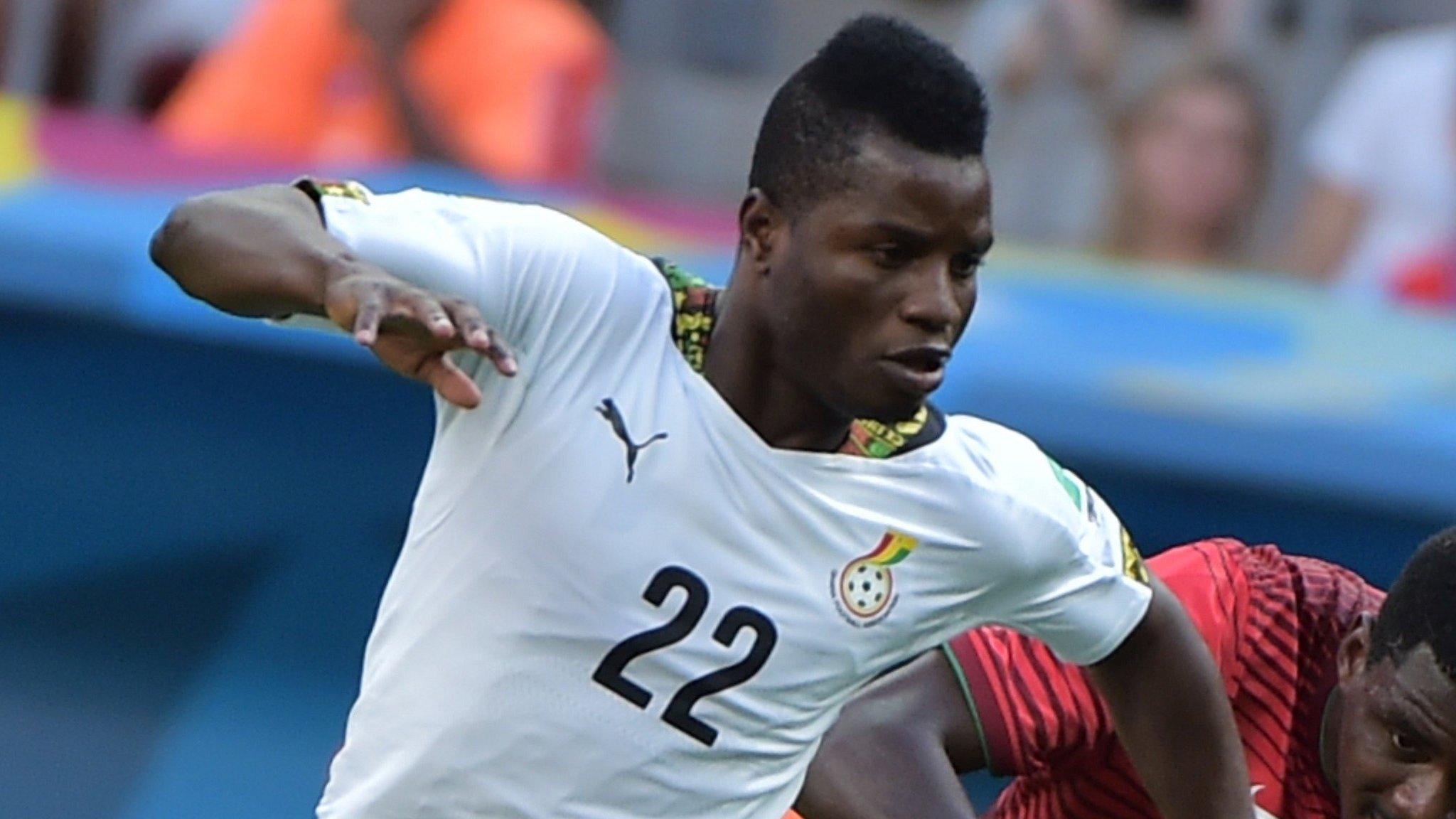
- Published27 August 2014
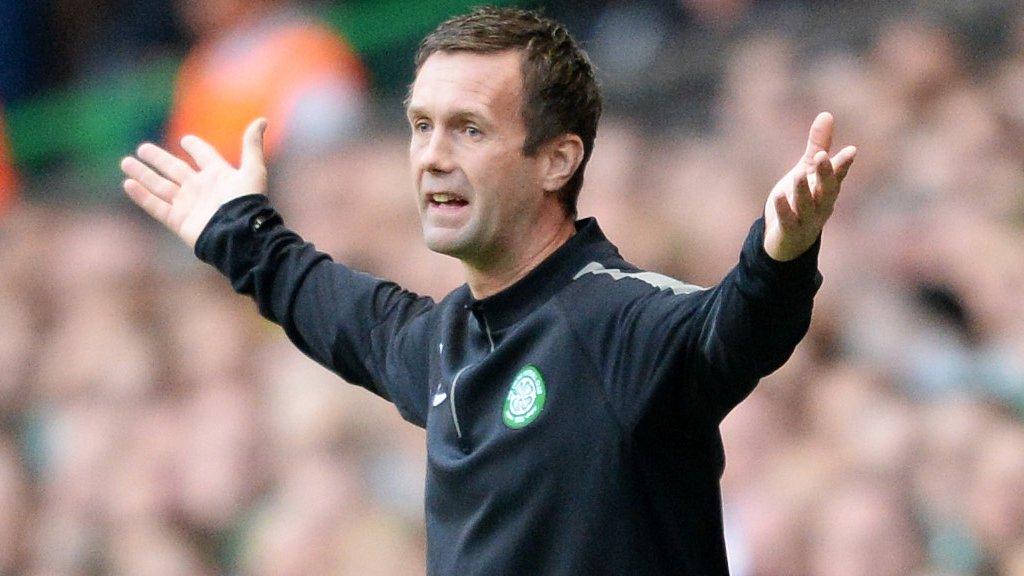
- Published27 August 2014
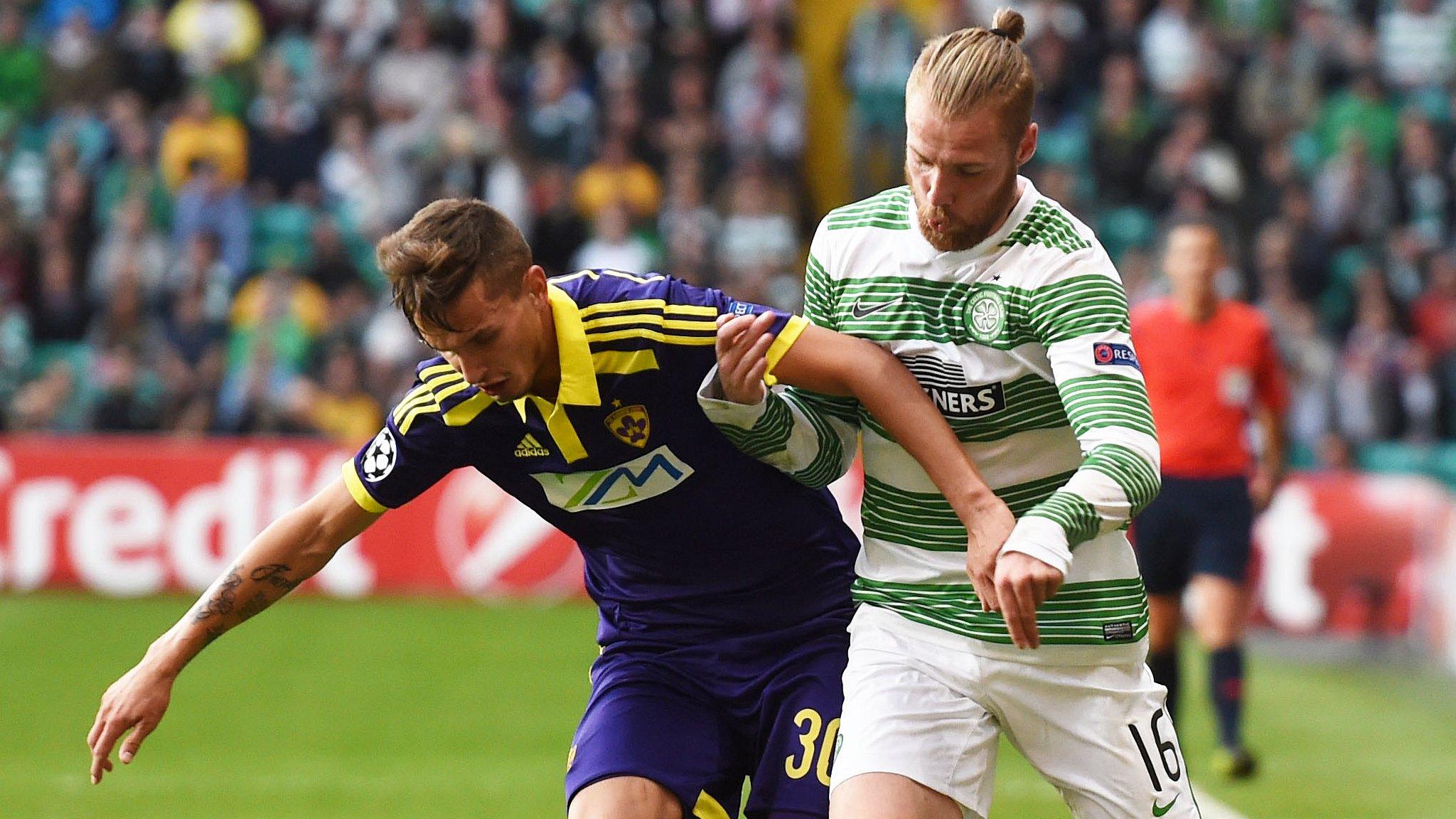
- Published26 August 2014
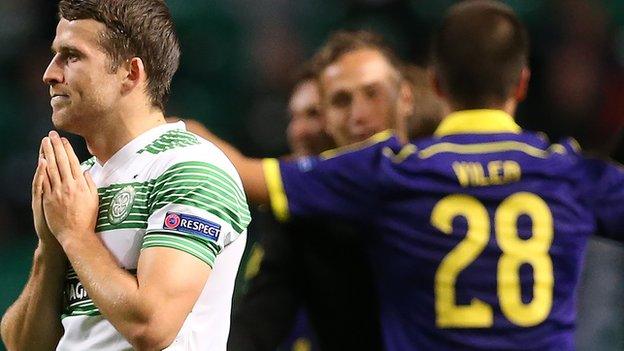
- Published26 August 2014
